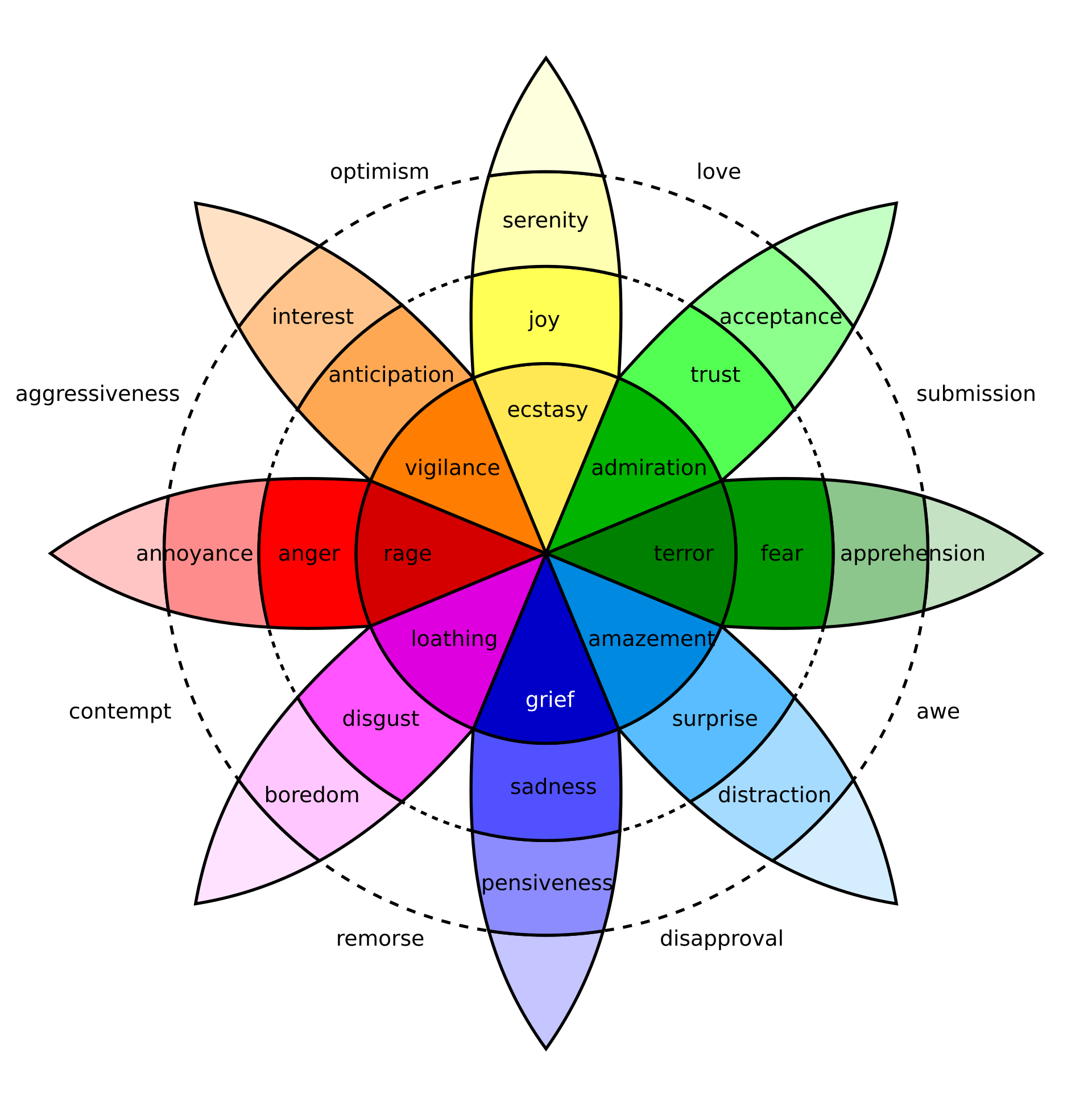As I am listening to a friend tell me about the difficulties she is experiencing at work, I am aware that in the span of fifteen minutes while listening to her, I have felt surprise, doubt, confusion, sadness, anger and resolve to help her get through it.
How aware are you of the feelings you experience throughout your day? Would you say you have a broad emotional vocabulary?
Communication experts explain that having a better emotional vocabulary not only helps you gain better self-awareness which helps you make more informed decisions, but it also contributes to more positive interactions with others and be more comfortable and honest.
There is nothing to fear about understanding your feelings. Emotions are simply an indicator that you are feeling something in response to an event in your life. Positive or negative, when you’re in tune with the emotions you are feeling, you have access to important knowledge that helps with:
- decision-making
- relationship success
- day-to-day interactions
- self-care
Its also important for others to know how you are feeling as it provides additional context in the conversation – especially if its online. You are no doubt familiar with emojis – the cute little smileys used in electronic messages. They appeared in early 2000, and their primary function is to fill in emotional cues otherwise missing from typed conversation.
People who have a good understanding of their emotions, tend to cope better with life’s stressors and are more resilient in difficult situations. For example, if you know you are feeling threatened, you know to reach for strategies that make you feel more confident. You can use this knowledge to develop good coping strategies.
“Let’s not forget that the little emotions are the great captains of our lives and we obey them without realizing it.”
– Vincent Van Gogh
Emotions are a good thing, but they can also leave you feeling vulnerable. Here are ten positive actions that can help you manage your emotions.
- Exercise will release reward and pleasure chemicals in the brain such as dopamine, which makes you feel better.
- Be kind to others, because this helps stop you worrying about yourself.
- Be open and accept what is going on around you. Be aware of what is going on in the moment and appreciate what is happening without judgement or criticism.
- Socialize Spend time with other people and enjoy their company.
- Distract yourself. Watching a bit of TV, reading, or surfing the internet will probably help you forget that you were feeling a bit down.
- Don’t give in to negative thinking. If you find yourself having negative thoughts, then challenge them by looking for evidence against them.
- Spend time outside. Being in the fresh air, especially around nature, is very helpful for calming the emotions.
- Be grateful. Thank people in person for doing nice things for you, and remember it.
- Play to your strengths. That often means doing things that you enjoy, but it also involves doing things that are good for you.
- Notice the good things in your life. In old-fashioned terms, count your blessings
When all else fails, take a deep breath.
Theres a reason why you’re told to “count to ten” before reacting to negative or stressful situations. That is meant to give you time to process your feelings, and manage your emotions before you respond. Taking a deep breath helps connect with your emotion. It forces you to slow down your response, while you take stock for what you are feeling, and think of what you should do next.
The same could be said for positive experiences where realizing that you are experiencing joy, you can either sit back in contentment and serenity, or seek more of that joy and push towards ecstasy.
The broader your vocabulary, the easier it is to understand yourself and the world around you, and it helps you understand the reason for your reactions and behaviour in certain situations.

Tips to develop a better understanding of your emotions
- identify what you are feeling. (refer to an emotions list or vocabulary)
- accept your emotions – all of them
- keep a mood journal
- give yourself time to live with the emotion and accept it
- try meditation

